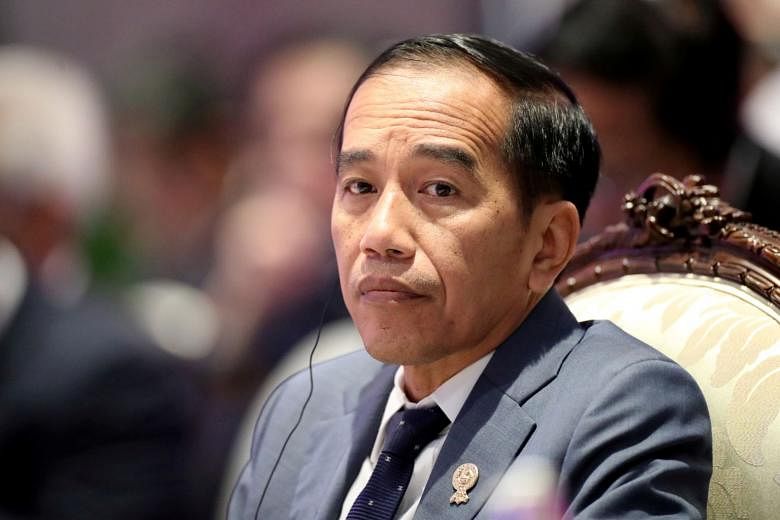By the middle of next month, if everything goes according to plan, Waskita Karya, Indonesian's biggest and most indebted contractor, will sell two toll roads and gain badly needed cash.
The sale comes as Indonesia's President Joko Widodo, widely known as Jokowi, seeks to extend his infrastructure-building bonanza during his second and final term.
The price tag? US$400 billion (S$544 billion). The government is also eyeing plans to move the capital from Jakarta to a place somewhere on the east of the island of Borneo at an estimated initial cost of 466 trillion rupiah (S$45 billion).
But Mr Joko may need to find another way to pay for his building frenzy because the country's state-owned contractors are already in debt up to their necks.
Total debt for the four listed state-owned construction companies, including Waskita, Pembangunan Perumaha (PP), Adhi Karya and Wijaya Karya grew sevenfold during the four years to the end of this year, according to Singapore-based S&P analyst Xavier Jean.
If they spent every penny they earned in profit to repay lenders, it would take them more than six years, Mr Jean said.
"The government's policy has been to rely on construction SOEs for much of the infrastructure spending," Mr Jean said, referring to state-owned enterprises.
Another barometer of how cash-strapped the construction companies are: the rocketing levels of short-term debt. These reflect the bank loans they take to pay workers and suppliers before clients make good on contracts when projects are completed.
But with the demands of the government to build two dozen airports and terminals as well as toll roads, container terminals and other infrastructure, the contractors have become a drain on the banks. "Leverage at construction SOEs has grown so fast that at some point it will be difficult for them to take on more projects without creating more risk to the system," Mr Jean said.
Waskita's short-term debt ballooned from 3.2 trillion rupiah at the end of 2015 to 28 trillion rupiah as of the end of last year.
At Wijaya Karya, Waskita's chief rival, short-term loans from third parties rose from 2.5 trillion rupiah last December to 7.2 trillion rupiah in September as work on the Jakarta-Bandung high-speed rail ramps up, according to the most recent data.
To be sure, Mr Joko's building spree has had something to show for it. The Trans-Java motorway turned what was once a tortuous overland car journey from Jakarta to Surabaya counted in days into one that can be traversed in hours. New airport terminals dot the archipelago from Palembang in South Sumatra, to Palopo in South Sulawesi. New and retrofitted stadiums completed for Jakarta's Asian Games telegraphed to viewers a glossier image of the capital than the one they were used to.
The state-owned sector is extensive and involves itself in nearly every facet of the economy. There is a state-owned company that operates pawn shops, for example. Revenue among SOEs is equivalent to 14 per cent of the country's gross domestic product, more than any other country except China.
But the country's underwhelming tax take, coming in 15 per cent less than planned this year, will make it tough for the government to ride to the sector's aid. That has led to pursuing asset sales where they can.
The upcoming sale of 40 per cent of two newly finished segments of the 1,170km Trans-Java toll road to China's Road King Infrastructure for 1.9 trillion rupiah comes just in time.
But other asset sales have been less straightforward.
In April last year, Waskita raised five trillion rupiah from the sale of a 70 per cent stake in three additional toll roads to a mutual fund owned entirely by state-owned entities including pension fund Taspen.
But, under the terms of the agreement, the fund will wind up in five years, and Waskita will have to repay investors - plus 10 per cent interest per annum - unless it can find another buyer, according to a prospectus seen by The Straits Times.
Mr Hendra Hermanwan, vice-president of investment banking at Danareksa, who is advising Waskita on its sale, is confident it will find a buyer before the April 2023 expiry.
"The assets are in high demand," Mr Hendra said. "We are confident the tender will be very competitive."

